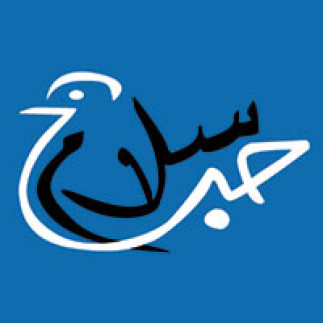Conférence publique organisée par la Chaire de recherche du Canada Islam, Pluralisme et Globalisation de l'Université de Montréal.
Invité
Eric Hooglund
Résumé
During 2011 and 2012, Israeli Prime Minister Benjamin Netanyahu made repeated threats that his country must bomb Iran’s nuclear sites to prevent the latter country from acquiring a nuclear bomb, which development, according to Netanyahu, would pose an existential threat to Israel. The United States officially maintains that Iran does not yet have a nuclear bomb, but that its enrichment of uranium provides it with the technical expertise to make one quickly and, therefore, ‘all options are on the table’ to prevent it from acquiring a bomb. What is all this threatening talk about? Is Iran actually building a bomb, as Netanyahu -and perhaps the USA - claims, and if so, does that justify a pre-emptive Israeli attack on Iran’s nuclear facilities? The aim of this presentation is to decode the rhetoric of senior political leaders in both the United States and Israel about Iran’s alleged efforts to develop a nuclear weapon in order to understand the complicated political issues at stake for the region - and the world.
Note biographique
Eric Hooglund is Lund University’s international academic expert of contemporary Iran (1945 to the present), a country about which he has been researching, teaching and writing since the early 1970s. His most recent books, Gender in Contemporary Iran (co-edited with Roksana Bahramitash, Routledge, 2011) and Navigating Contemporary Iran: Challenging Economic, Social & Political Perceptions (co-edited with Leif Stenberg, Routledge, forthcoming, January 2012), reflect his broad interdisciplinary research interests and complements his previous publications—five books and over 100 articles, which examine diverse aspects of Iranian culture, government, history, international relations, literature, migration, political economy, sociology, and religion. Although trained as a political scientist (MA and PhD degrees in International Relations from Johns Hopkins University), his best-known work falls in the category of rural political economy and sociology: Land and Revolution in Iran (University of Texas Press, 1982; Persian translation, Shirzeh Press, 2002); and numerous articles, including most recently, “Thirty Years of Islamic Revolution in Rural Iran,” Middle East Report, no. 250 (spring 2009).
Prof. Hooglund has a long-standing commitment to the development of Middle East studies. For more than a decade he was a member of the editorial collective of MERIP Middle East Report, later was editor of The Middle East Journal and since 1995 has been editor of Middle East Critique, a scholarly journal whose academic home became the Center for Middle Eastern Studies in the fall of 2010. He also has worked for several Middle East-focused non-governmental organizations, including the Carnegie Endowment for International Peace, the National Security Archive, and the Institute for Palestine Studies. His recent publications include: ‘Iran,’ in the Oxford Companion to Comparative Politics (ed. by Joel Krieger, Oxford University Press, forthcoming); Iran, A Country Study, co-edited with Glenn Curtis (Library of Congress, 2008); Encyclopaedia of the Modern Middle East, associate editor for Iran and Turkey (Gale Thomsen, 2007); “Iran, Wary Neutral,” in The Iraq War: Causes and Consequences, edited by R. Fawn & R. Hinnebusch (Lynne Rienner, 2006)…
Présentation en anglais. Période de questions bilingue.

